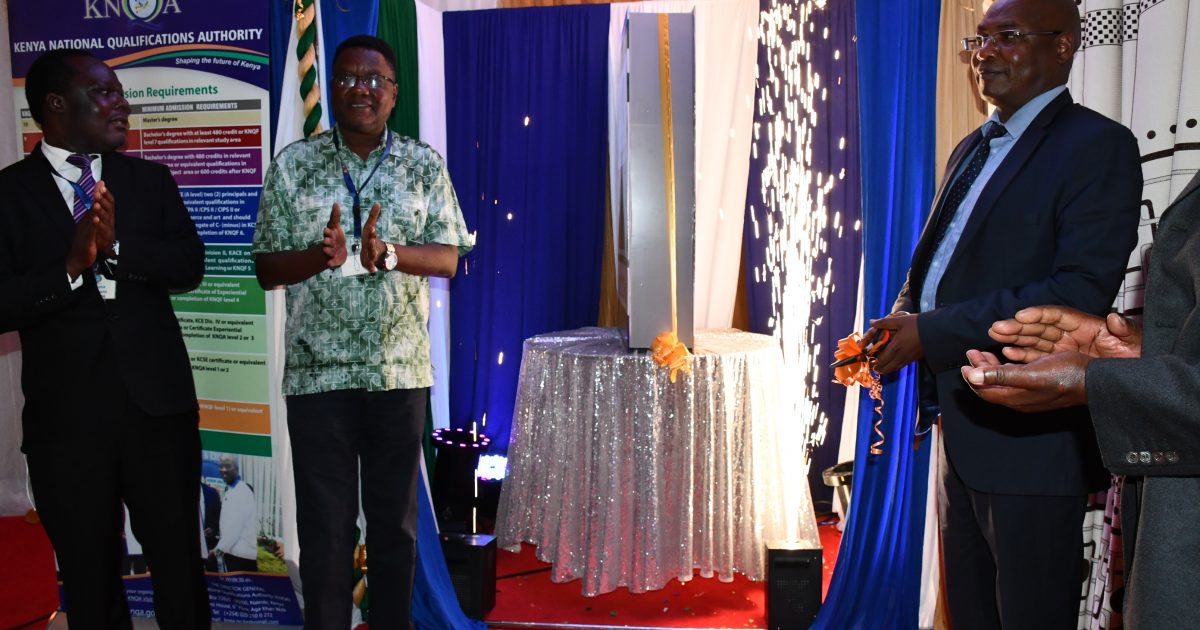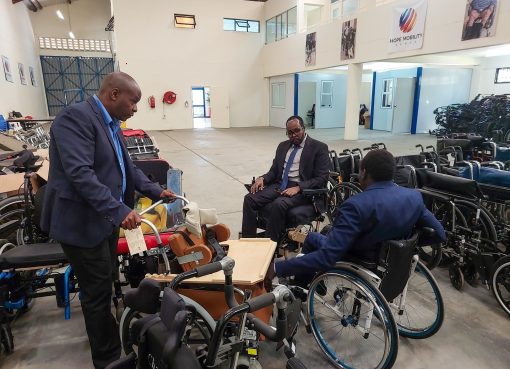The Kenya National Qualifications Authority (KNQA) has rolled out a policy framework in recognition of informal-sector skills by institutions of higher learning and employers in the public and private sectors.
Under the comprehensive plan, youths in the agricultural sector will be awarded certificates based on the skills they have acquired at work and without having to seek formal education.
Principal Secretary State Department for Livestock, Mr Harry Kimtai, said the policy is also designed to enable students in Agricultural Institutions such as the Animal Health and Industry Training Institute (AHITI), Dairy Training Institute and Livestock Training Institute transfer their academic credits to universities whenever they wish to further their studies.
Mr Kimtai indicated that by providing a framework for recognition of the skills through awarding of certificates based on competence, it would motivate the youth engage in farming and participate in various economic opportunities.
“Acquisition of relevant skills was one of the key drivers of change and development. The National Government has recognized the global drivers of change that have a direct bearing on skills development. Policy intervention will also expand opportunities for artisans and craftsmen in the Jua Kali sector to participate meaningfully in the country’s economy,” he pointed out.
He spoke at Egerton University’s Njoro Main Campus during the unveiling of a Technical team and National Advisory Committee that will spearhead implementation of the policy.
Mr Kimtai observed that the policy will enable practical skills and competences acquired through on job training or by students in polytechnics and agricultural colleges be certified and provide the individuals with an opportunity to seek employment or further their education.
KNQA Chairperson, Dr Kilemi Mwiria, and its Director General and Chief Executive Officer, Dr Mukhwana Juma, graced the occasion that brought on board Commission for Higher Education (CHE), Kenya Universities and Colleges Central Placement Service (KUCCPS), Principals and Vice Chancellors from Technical Vocational Education Training Institutes and Universities.
In June this year, President Uhuru Kenyatta gave KNQA a 30-day ultimatum to issue a policy framework for recognition of informal-sector skills.
The President said the policy would address unfairness in tendering for contracts, which often locks out youth engaged in farming, Jua Kali artisans and craftsmen due to lack of papers.
The KNQA began developing the policy guidelines in 2018. The Recognition of Prior Learning (RPL) is a policy aimed at recognizing all persons who have acquired skills and competence from informal and non-formal settings.
The policy targets the youth and individuals seeking certification and recognition of their competencies regardless of their educational background.
Dr Mukhwana indicated that the RPL will be used to identify, assess and certify a candidate’s knowledge, skills and competencies acquired in non-formal or informal learning, such as work or life experiences, against prescribed standards or learning outcomes.
“The RPL is a programme that we use to recognize skills that people in the Jua Kali sector have, be it in farming, plumbing, masonry and tourism – among others – even if someone has not gone through formal learning,” said Dr Mukhwana.
The Director said the KNQA would engage the youths in the Jua Kali sector and encouraged them to apply for assessment.
He assured them the authority would issue them with certificates to enable them find jobs or further their studies. The policy will be based on an individual’s skills, competencies and evidence portfolio. Once one proves to be qualified, the KNQA will issue a certificate of recognition.
The RPL process takes six weeks from the time an individual submits their evidence portfolio to the time a certificate is awarded.
It involves assessment of practical work experience one has gained in either the formal or the informal sector.
Individuals are required to submit their Curriculum Vitae outlining the specific job they do and the skills they have, samples of their work and products, videos and photographs of the work, skills logbooks, details of formal training and testimonials from current or previous employers and customers. All persons with acquired skills are eligible to apply for the certification.
Through the RPL, the government seeks to promote employability, mobility, progression and fair chances in education to the disadvantaged, discouraged and traditionally marginalized groups.
Dr Mwiria stated KNQA in collaboration with its partners was working to ensure that the Authority achieves a globally competitive quality education, research, and training for sustainable development as envisioned in Kenya’s Vision 2030.
The Chairman observed that over the years, employers have raised concerns about the quality of graduates from various training institutions not having employable skills.
“The quality of education and training in a country is crucial in the production of a competent workforce and for the workforce to remain employable, agile and resilient in the context of change, they will need a combination of different types of skills,” he said.
Dr Mwiria indicated that the authority remained cognizant of the need to foster a globally competitive, responsive and adaptive work force through skills development programmes that adequately respond to the current and future skills demands of the industry.
He said the organization is closely working with employers and other industry players to ensure that all qualifications awarded in the country meet both the employer and national standards expectations.
“KNQA is also working on national policies that will support the assessment and examination under the system as set out in the law,” he added.
By Anne Mwale





